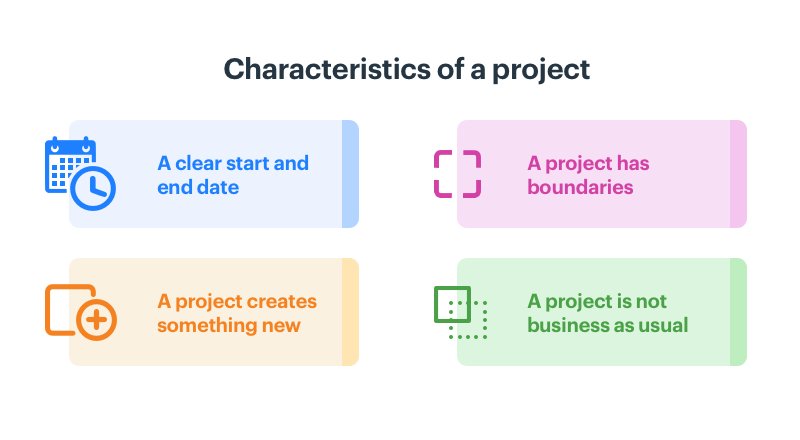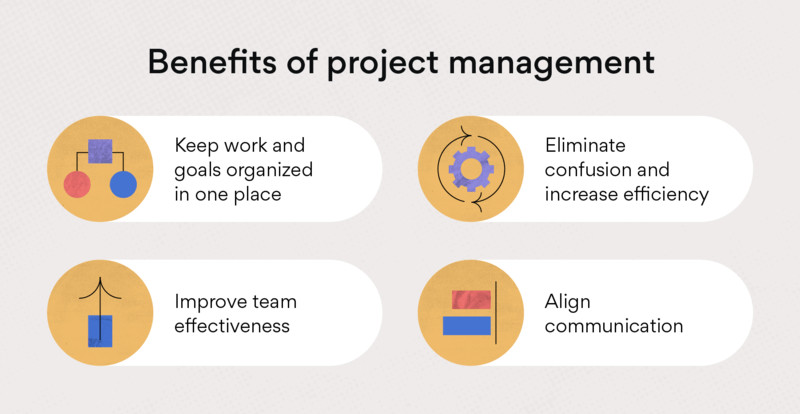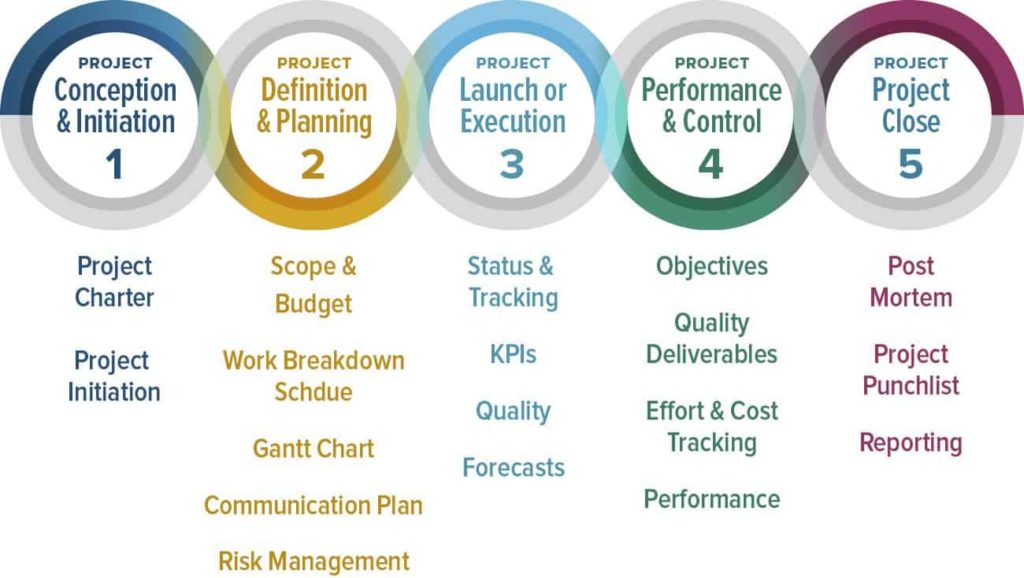Project management is the process of coordinating the work of a team to achieve all the goals for that project.
It is also the synthesis of knowledge, using skills and tools and many techniques to provide certain values to complete the best project.
Every company has projects operating to assure its development. As a result, project management is a demand that companies should pay extra attention to.
This article will discuss the definition, core components, and stages of a project management system. Let’s read on to discover!
What is Project Management?
Project management uses procedures, knowledge, skills, methods, and practice to accomplish specific project goals within agreed-upon boundaries.

The project management has the desired objectives, and a time frame distinguishes it from other types of management. Management is simply a continuous activity.
A project manager must demonstrate a diverse set of qualities, including frequent technical skills and human management abilities, and business acumen.
What is a Project?
A project is a one-of-a-kind, transitory action performed to attain predetermined goals. Successful projects have to meet the objectives based on the established standards within the project budget and timeline.

All the project plans operate on the foundations of time, budget, and effectiveness. These project components are also the project requirements.
Time management
A project plan is a set of strategies for generating and delivering timetables that illustrate when to complete the work.
Budget
How the conductors acquire and manage finances.
Effectiveness
How to guarantee the outputs and management systems to be suitable for the goal.
The Core of Project Management
Project management includes different tasks to ensure quality.
- Establishing the need for a project
- Putting up a business strategy to maximize return on investment
- Obtaining business permission and finance
- Developing a project management plan
- Managing and encouraging the project delivery staff
- Handling the project risks
- Keeping contact with the client and the project team;
- Supervising providers
- Investigating the progress
- Handling the project finance
- Controlling the project completion
Why Do We Need Project Management?
Project management aims to create a final result that will affect some improvement for the organization’s goods. It is the beginning, organizing, and controlling of various necessary tasks to achieve this ultimate result.

For common targets
We need to run project management to:
- Create anything new or updated, both tangible and intangible.
- Have a fixed time frame: a beginning and an ending.
- Turn the work to be more specific for the groups and work involved.
- Change the management methods.
- Control the management risks.
Investing in good project management will provide a wealth of advantages. The organization can increase the chance of attaining the optimal results, guarantee efficient and superior utilization of resources, and fulfill the project’s stakeholder management.

For project manager and project team
Project management begins with individuals. The staff should understand their position and value. They need to follow through on becoming a good member for their teams.
Second, there is the issue of coordination. A project manager will not succeed in a team if the members’ roles are not appreciated.
When Do We Need Project Management?
Project management is essential for any organization. Every organization has many projects, and these projects develop concurrently.
However, there should be a correction in the project management policy, such as budget resolution or working time.
A project management methodology necessitates the brief gathering of a group of individuals to work on specific project objectives. As a result, strong collaboration is essential for project success.
Project management focuses on the management of distinct modules of work to meet particular goals. A wide range of factors will affect how to manage the workflow.
Project Life Cycle

Although numerous project management procedures exist, a project life cycle has to include these project phases:
1. Initiating
The project manager analyzes all activities, sets timeframes for each, and defines the linkages and connections between each task.
2. Planning
The project planning stage needs the project manager to analyze all activities, set timeframes for each, and define the linkages and connections between each task.
3. Execution
The manager sets up the project management office and assigns funds as well as resources to particular tasks.
4. Control
The manager monitors the project progress and adjusts project attempts to represent real performance.
5. Closing
The manager must make sure that the business will accept the project’s deliverables and then disband the staff.
Necessity Skills for Project Managers
You can master project management methodologies by learning from any project management institute. In general, an effective project manager should master multiple project management techniques.
This position also necessitates a company’s strategic mentality, teamwork, conflict solving ability, and project management practices.
The transition management expertise is also among other in-demand vital skills a project manager should have.
Project managers should show leadership, inspire team members, and solve problems at the best level.
Another important non-technical skill that project managers must have is flexibility. Communication skills can also assist managers to thrive in this sought-after job.
Career Opportunities
The nice thing about a profession in project management is that almost every industrial area requires project managers with varied specialties, making this field an excellent career option.
Companies that always seek talented project managers are technology, engineering, education, marketing, finance, insurance, and manufacturing.
The Bureau of Labor Statistics predicts a bright future for project leaders. Any company that runs projects demands project managers.
We have just listed a couple of the diverse project managers that organizations in various industries are looking for.
Conclusion
Project management is crucial for the assessment and development of every organization. Every member of the project team has to cooperate to achieve the ultimate goals.
If the project manager applies his project management knowledge to properly set the budget, human resources, and time frame, the ongoing process will go smoothly. A leader needs to master project management tools as well.

